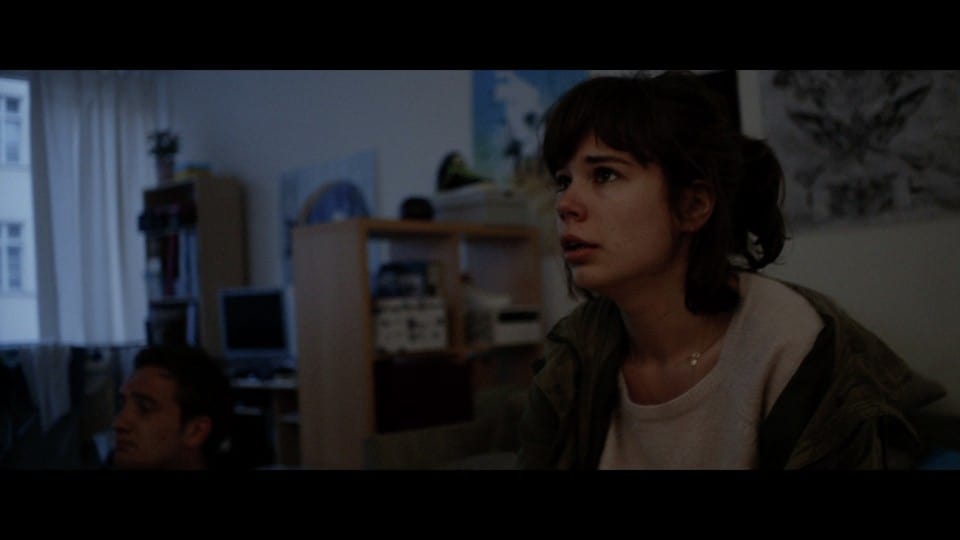Victoria begins with sound and colour. At first it’s hard to know what you’re looking at, but then you understand: you’re in the strobing heartbeat of a nightclub. As the aperture slowly adjusts and shapes become distinguishable amid the flashing lights, the camera dances tightly alongside the heroine, sometimes drifting away and circling around, but never fully departing from her for the film’s entirety. On one such night, Victoria encounters Sonne (played by Frederick Lau), a charming man flanked by a thuggish, but loving group of compadres: Boxer (Franz Rogowski), Blinker (Burak Yigit), and a drunk Fuss (Max Mauff). Victoria and the guys quickly become friends, walking around and taking on the city in their young and reckless nature. This calm is necessary before the storm that is Victoria’s second half.
In one particularly beautiful moment, Sonne and Victoria spend some time alone together in the cafe where she works. She makes him hot cocoa, while he flirts with her and opens up the piano sitting in the corner. Later we learn that Victoria is a failed piano prodigy, someone who had to sacrifice her relationships in order to master the instrument. The camera holds on Victoria’s face while they interact, played to pitch-perfect vulnerability by Laia Costa, where nothing is said but everything is silently communicated through a look of conflicted emotion.
Such is the language of the film, which uses the movement of the camera, ambient sound, and lighting to communicate the conflicted mind of a person who has dedicated their entire life to a craft only to be told they’re not good enough to continue. When Victoria is asked to be the getaway driver of a spontaneous heist to pay for Boxer’s protection benefits from prison, it doesn’t take much to convince her.
A propulsive thriller shot in one continuous take over 22 locations, all within a short taxi ride away, it would be easy for viewers to write off Sebastian Schipper’s film as a gimmick at first glance. Last year’s Birdman (Iñárritu, 2014), though an Academy Awards darling, received plenty of heat for disguising its illusory seamlessness with hidden cuts and slight of hand.
And while it is likely Victoria will never quite reach the same audience that Birdman did, those who do see it will come away breathlessly entertained and decidedly less polarized by this genuine one-take. While the former impacted with bombast and theatricality, Victoria executes with graceful precision, propelled by tight improvisational acting and the assured talents of cinematographer Sturla Brandth Grøvlen. Aided by the keys and strings of composer Nils Frahm, whose sparse music blooms in the aftermath of sudden bursts of intensity, what could have been a trainwreck in its naturalistic style remains firmly on the rails, stripped to its barest essentials but moving at peak efficiency.


